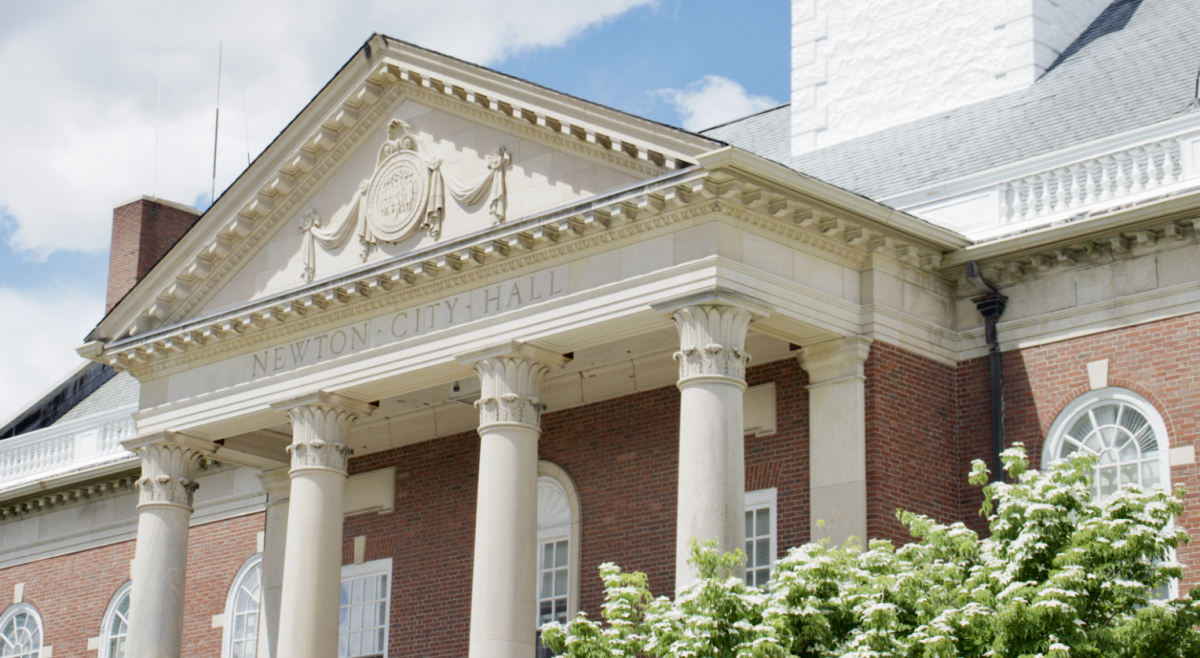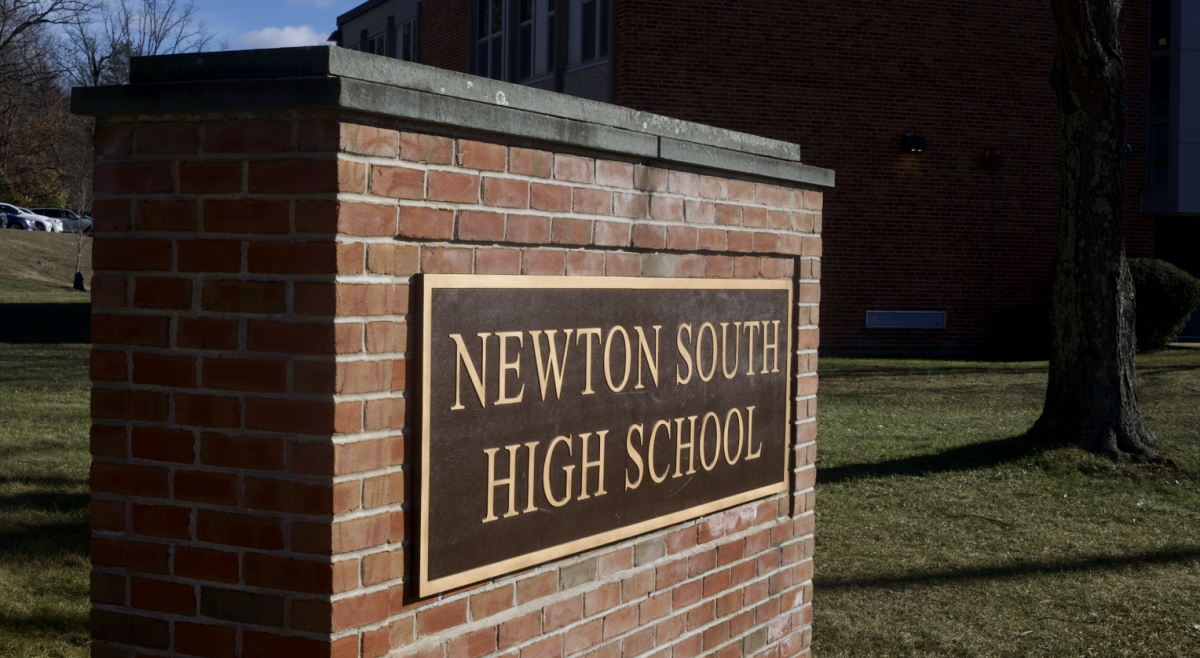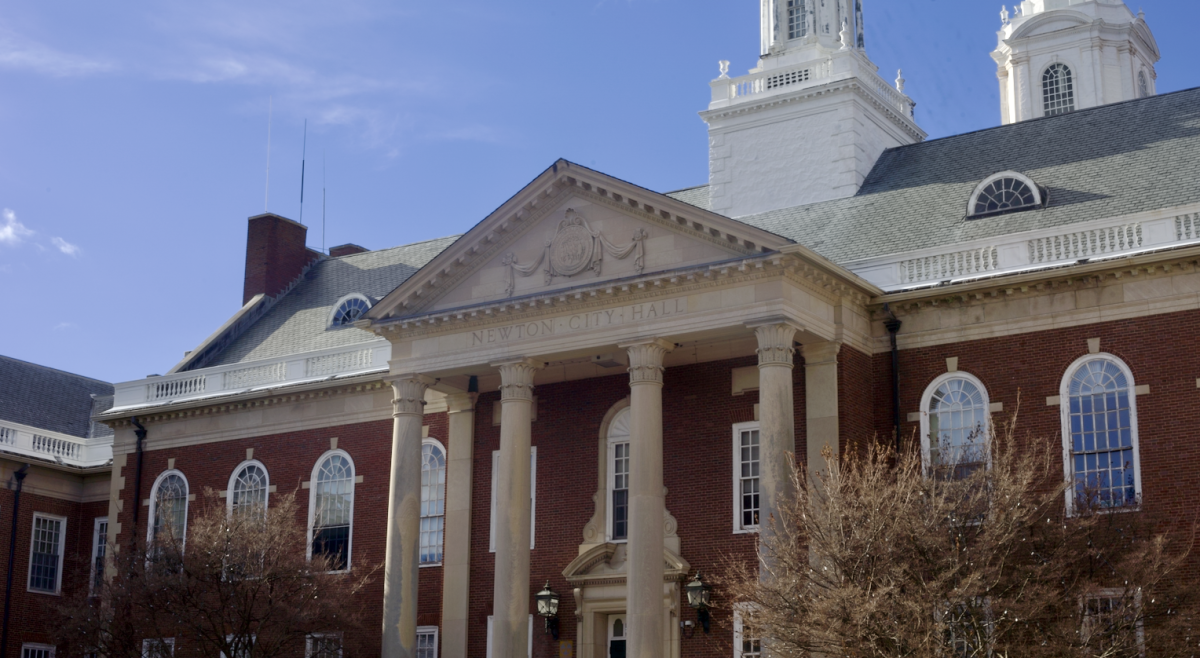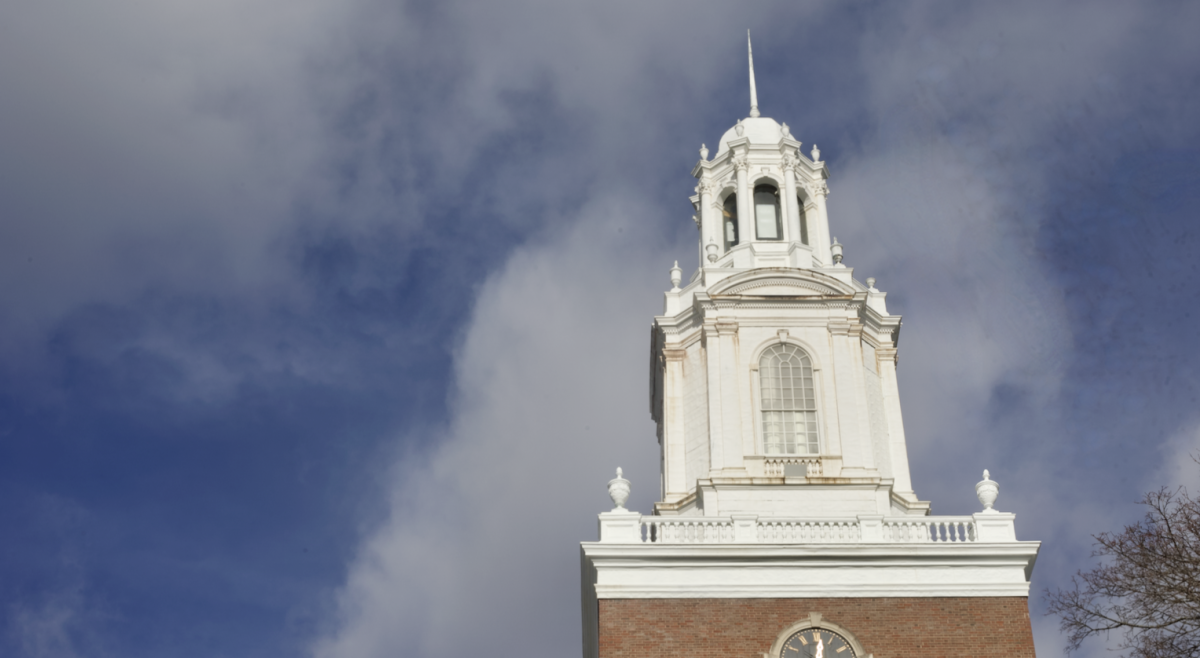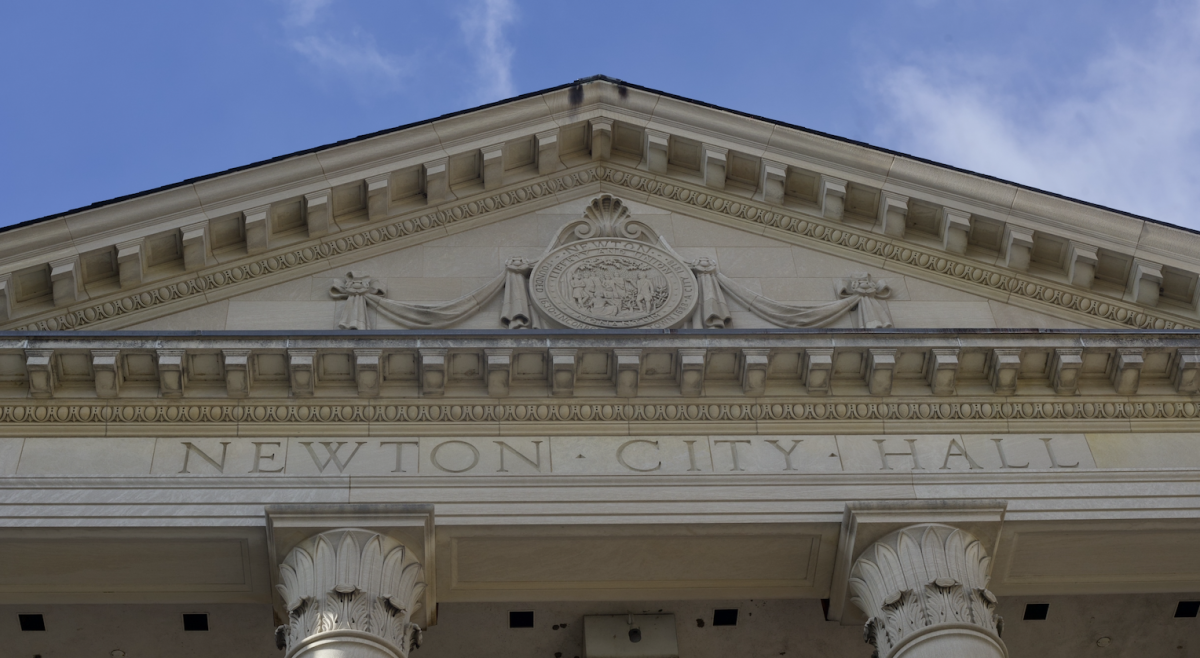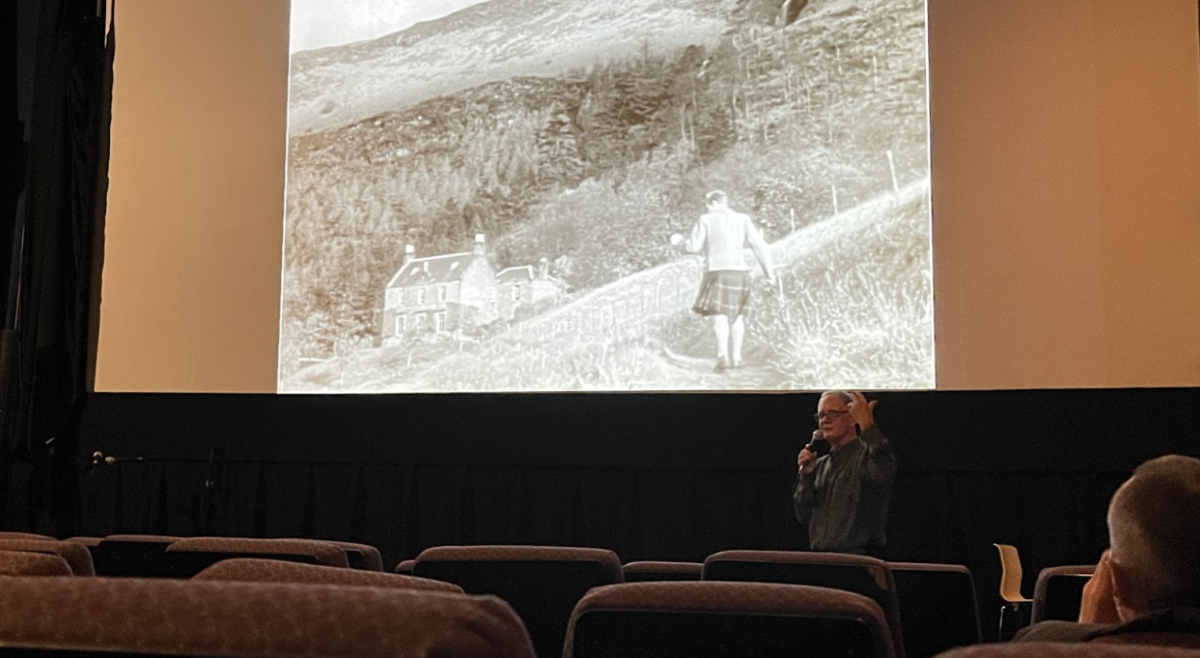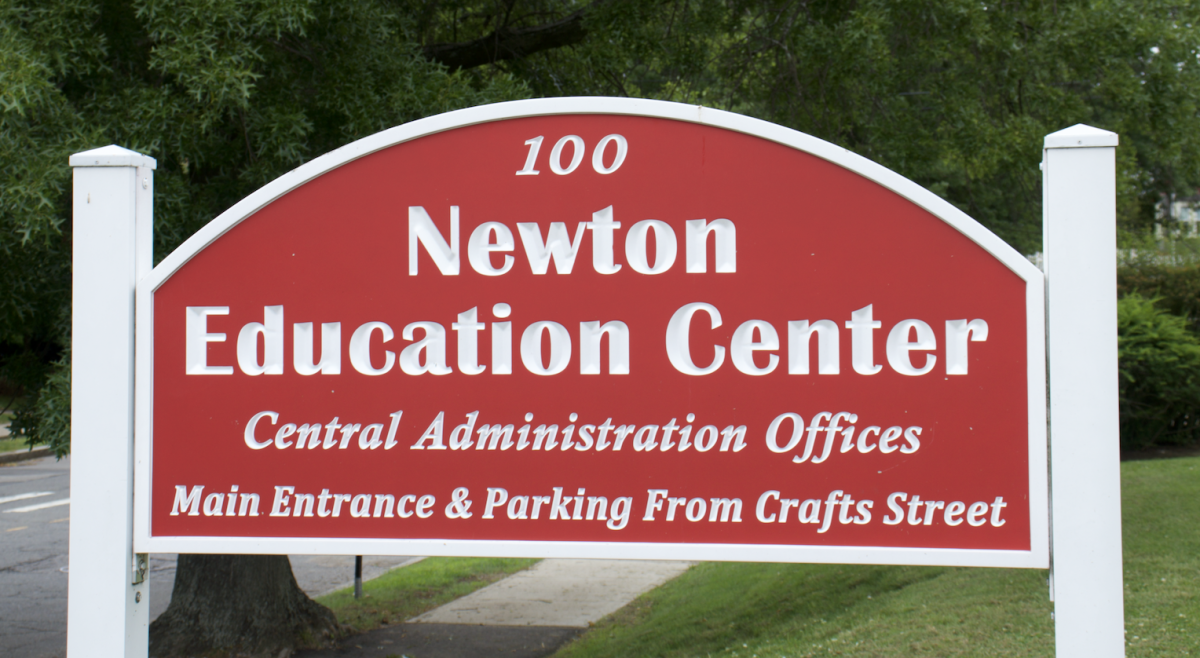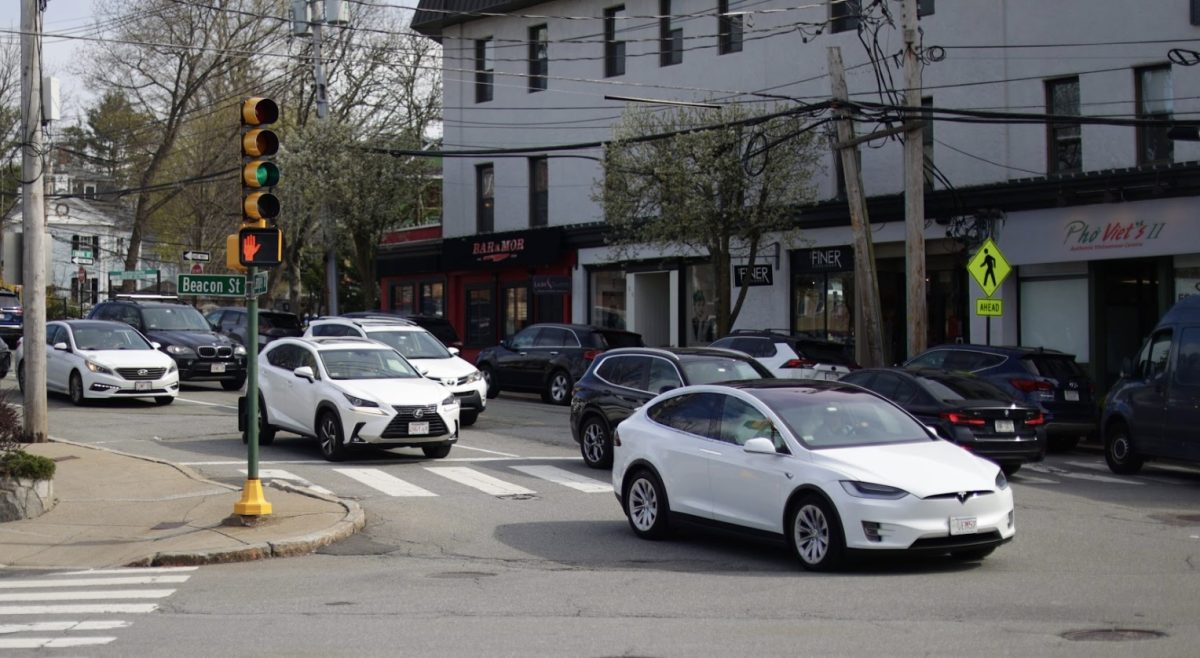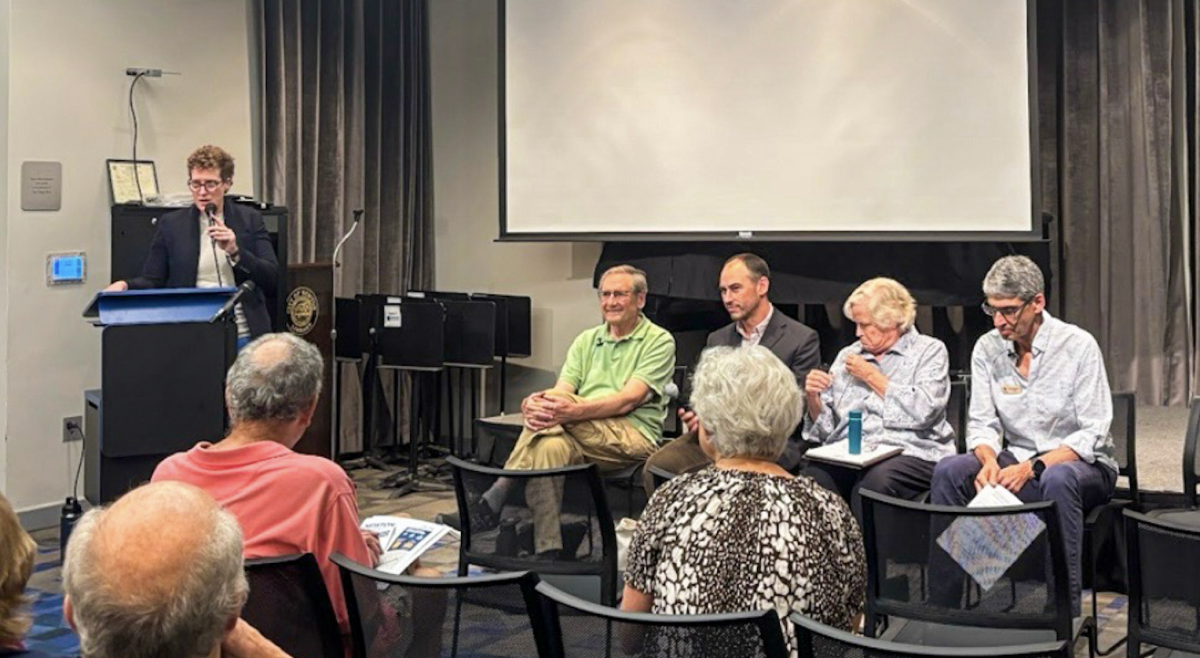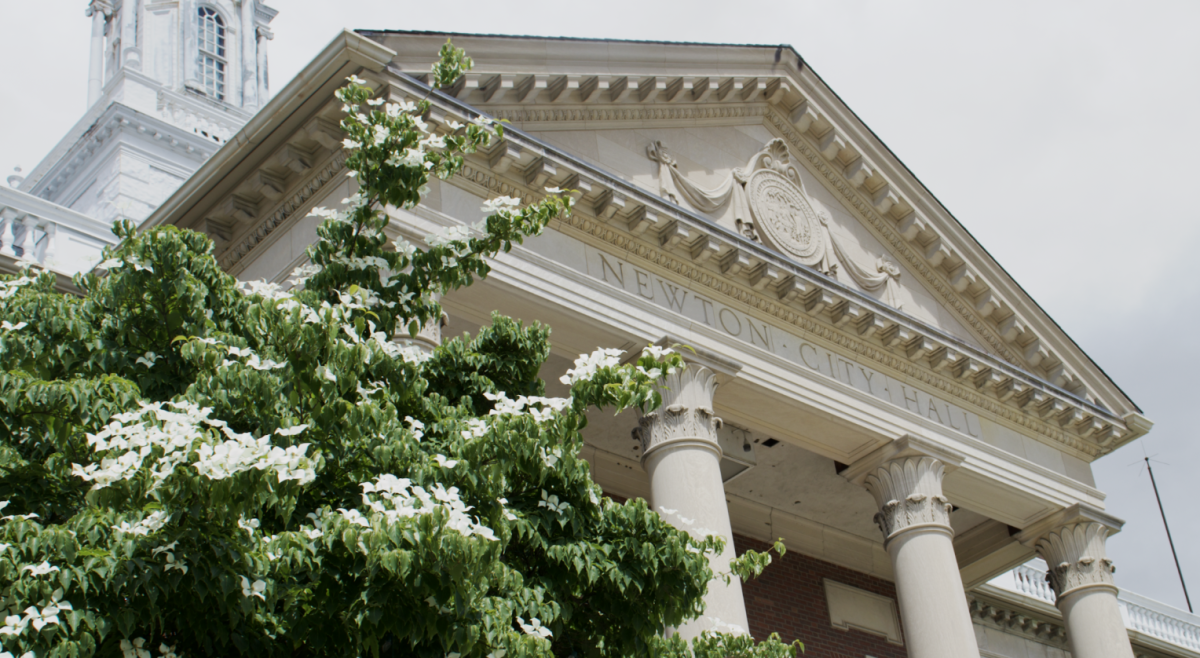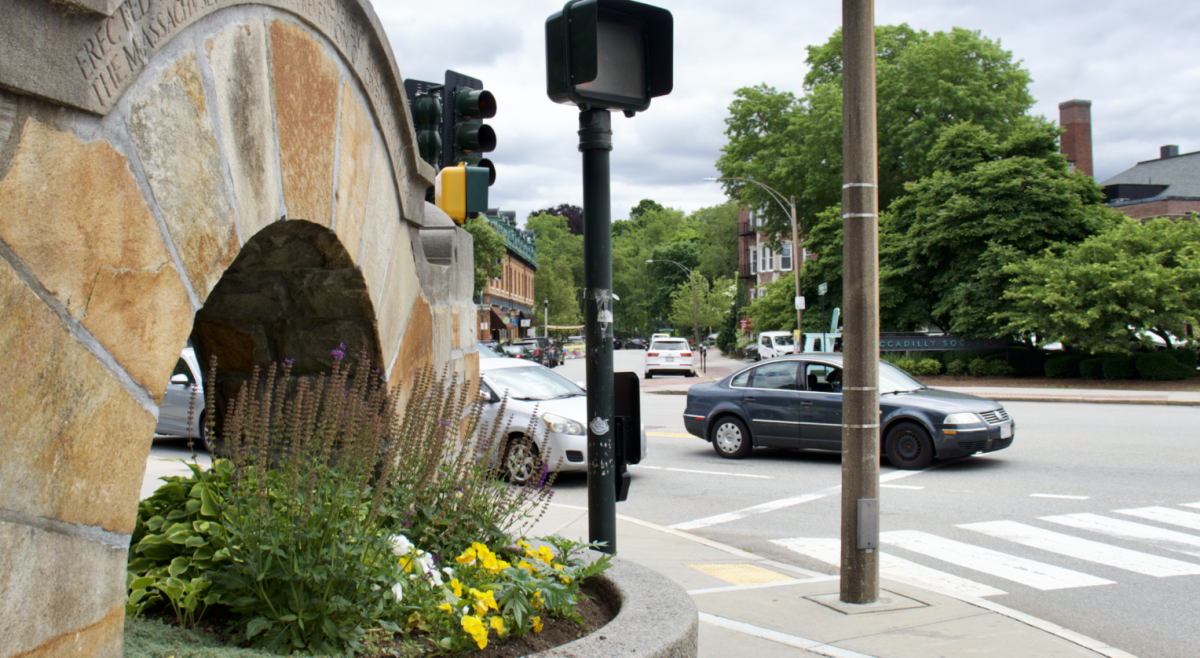Newton Mayor Ruthanne Fuller presented her long-range financial forecast to the Newton City Council on Oct. 6, warning of instability and unpredictability in the years to come.
“We are living in very strange times,” Fuller said. “We are delivering both a five-year and 10-year perspective on the health and financial future of the city, when you literally have to check almost twice a day to see what’s happening in the world.”
Fuller shared good news for the city, pointing to Moody’s Investors Service’s rating of Newton’s bonds—a AAA rating, meaning that Newton’s bonds are stable. Moody’s also identified, however, the city’s financial weaknesses, noting that tax levy limits will inhibit revenue growth in the coming years. The city also has limited room for new developments that would expand the tax base because Newton’s zoning limits how much new construction can be built.
Additionally, the Boston Federal Reserve highlighted in its quarterly report in September that concurrent consumer restraint is also negatively impacting Newton’s finances.
“The word they used repeatedly was ‘cautious,’” Fuller said. “They saw the outlook mixed as consumer spending is flattening, tariff uncertainty persisting, economic activity edging up only slightly.”
Fuller assured that the good news, however, was that property taxes contribute a large part of the city’s revenue—the revenue is expected to grow at 3.5 percent per year—and its performance is steady.
“Property taxes account for 83 percent of our revenues, and we can simply say it’s stable,” said Fuller. “That’s the good news. The problem is, it grows modestly than the other 17 percent of our tax base.”
Fuller’s $292.9 million appropriation to the schools comes in at $4 million less than Newton Public Schools (NPS) Superintendent Anna Nolin’s “level-services-plus” budget that the Newton School Committee (NSC) approved in an April 4 vote. Last spring’s budget negotiations dragged on for weeks, as Fuller and Nolin presented competing proposals that differed by millions of dollars.
Maureen Lemieux, chief financial officer for the City of Newton, said the Fuller administration is committed to expanding the budget.
“You have all heard and you will continue to hear that we have cut the NPS budget,” Lemieux said. “Nothing could be further from the truth. Over the past eight years, the NPS budget has increased by $75 million a year … It’s a 34.4 percent increase over the eight years, or a 4.3 percent average annual increase.”
In Fuller’s newsletter, she added that the NSC’s proposed budget for FY2026 was unrealistic in the long term.
“[The] multi-year financial forecast by NPS indicates the need for an FY2027 appropriation that is 7.1 percent more than the approved FY2026 Budget of $292,963,623 when the FY2026 additional Health Insurance costs are included,” Fuller wrote. “This is a cause for concern as the City simply cannot afford that level of spending.”
In the future, Lemieux and Fuller recommend a $14.66 million, or 5 percent, increase to the NPS budget to avoid its projected financial issues in 2030. To do this, Lemieux said the city needs to allocate a significant portion of its free cash toward a stabilization fund for the schools.
“It is our recommendation that the next administration bring forward a recommendation to take 10 of that $22 million and add it to the stabilization fund,” Lemieux said. “With the [current] stabilization fund, the schools will have a financial cliff in 2030.”
Lemieux concluded that in the years to come, Newton needs to keep its eye on various “icebergs” that threaten the health of the city’s finances in order to remain afloat and thriving.
“It’s incumbent upon all of us to make sure that we’re identifying our icebergs, that we are doing the best we can to steer around them,” Lemieux said. “We can’t fail. The city is bigger than any one of us sitting in this room, and so it’s up to all of us to work together to make this all happen.”

